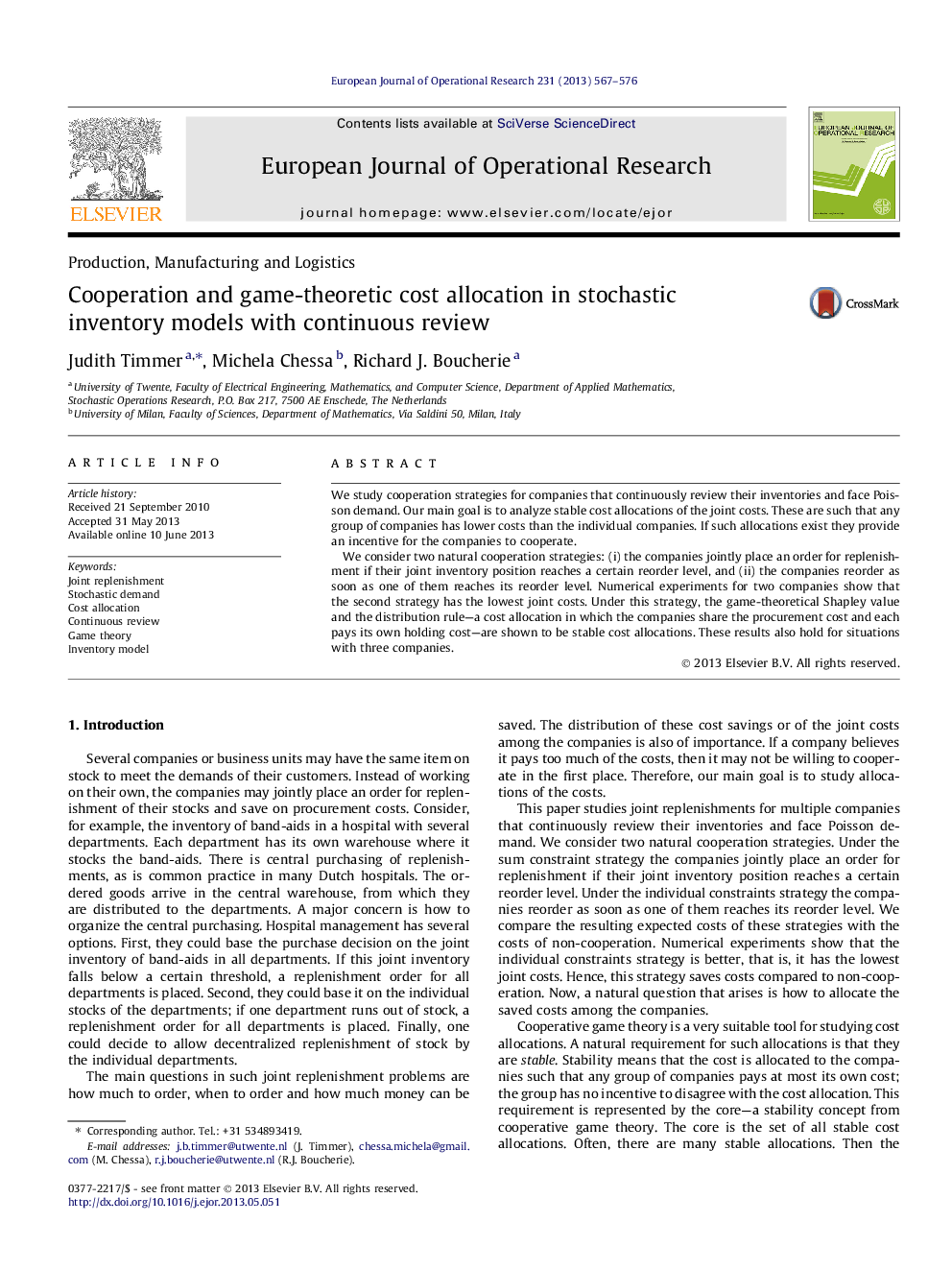| Article ID | Journal | Published Year | Pages | File Type |
|---|---|---|---|---|
| 6897753 | European Journal of Operational Research | 2013 | 10 Pages |
Abstract
We consider two natural cooperation strategies: (i) the companies jointly place an order for replenishment if their joint inventory position reaches a certain reorder level, and (ii) the companies reorder as soon as one of them reaches its reorder level. Numerical experiments for two companies show that the second strategy has the lowest joint costs. Under this strategy, the game-theoretical Shapley value and the distribution rule-a cost allocation in which the companies share the procurement cost and each pays its own holding cost-are shown to be stable cost allocations. These results also hold for situations with three companies.
Keywords
Related Topics
Physical Sciences and Engineering
Computer Science
Computer Science (General)
Authors
Judith Timmer, Michela Chessa, Richard J. Boucherie,
